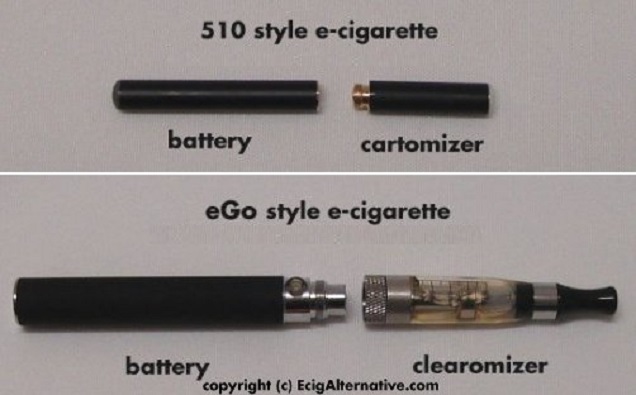Cochrane reviews are pretty well-respected. By both synthesizing the available evidence on an issue and evaluating the quality of that evidence, they enable evidence-based decisions to be made on a wide variety of issues. While we may be sure that e-cigarettes are effective for quitting smoking – having replaced our combusted tobacco habits with a considerably safer and vastly more enjoyable alternative – scientific evidence enables us to objectively confirm our strongly-held suspicions. For doctors, perhaps not fully aware of the existing evidence on e-cigs, and politicians or public health advocates likely harboring ideological views on recreational nicotine consumption, the evidence available has (or should have) the power to change opinions and guide policy decisions. They may not listen, but they should.
That’s why the new Cochrane review of the effectiveness of e-cigarettes for quitting smoking is a big deal: it confirms that the evidence to date supports the idea that even poorly performing cig-a-likes are effective for helping smokers either quit entirely or markedly reduce the amount they smoke.
The Review – Do E-Cigarettes Really Work? Look at the Evidence
The question the review set out to answer is a simple one: do e-cigarettes help people reduce or quit smoking? To answer the question, the researchers searched databases of studies to identify randomized controlled trials (RCTs) where current smokers (who either did or didn’t intend to quit) were randomized to either vape or be in a “control” group, and then the change in their cigarette consumption was tracked for a minimum of six months. They also added in cohort studies that followed participants for at least six months (because of the limited number of RCTs available), and some others that allowed them to look for side effects from vaping. They were mainly interested in complete abstinence from smoking, but also looked at the proportions that reduced the number of cigarettes smoked per day by at least half. The full text is available for free, if you want more detail on what they did or what they found.
The Results – More Evidence is Needed, But E-Cigs Do Help Smokers Quit

The researchers identified 13 eligible studies, with two RCTs (a couple of recent studies on second-gen devices hadn’t been released at the time the review was written) and 11 cohort studies. For the RCTs, there were a total of 662 participants assigned to e-cigarette groups, with the remainder being placed on a “placebo” e-cigarette, with no nicotine. Overall, these studies found that the nicotine e-cig users were over twice as likely to have quit smoking for at least six months as those using no-nicotine e-cigs. One of the studies also compared e-cigs to patches, and while there was no significant difference in quit rates, the reviewers point out that the precise figures don’t rule out a clinically important benefit of e-cigs over patches. Additionally, the assigned vapers in this study were 40 percent more likely to reduce their cigarette consumption by at least half than the patch users, and 31 percent more likely than the placebo e-cig users. However, while abstinence was objectively verified, reductions weren’t.
These two studies were judged to be of low risk of bias, but the small number of trials (and therefore the small number of participants) meant that the overall quality of evidence was ultimately viewed as low or very low, meaning that further research could well adjust the estimate of the size of the effect.
The authors noted that both of these studies used cig-a-likes, which perform poorly in comparison to later-generation devices and had low nicotine content. Additionally, the similarity of the process of vaping to the process of smoking may be beneficial, and focusing on “placebo” e-cigarettes (which still include these behavioral cues) rather than an alternative, non-smoking-like treatment may have led to an underestimation of their effectiveness. They basically focused on the difference that the nicotine in e-cigs makes, rather than the overall difference e-cigs make.

The cohort studies included generally had similar results, although ordinarily with much lower numbers of participants. As we’ve commented in our individual coverage of some of these studies – often Glantz-affiliated – the authors note many significant problems with some of this research. For example, some of the studies specifically followed people who’d already used e-cigs and been unsuccessful in quitting smoking (literally focusing on the failures and ignoring the successes) and some didn’t even check that participants were planning on using e-cigs in their studied quit attempts. The reviewers note how their results differ dramatically from the WHO-funded overtly anti-e-cig “systematic” review which focused specifically on these flawed results (many of which didn’t even make the cut for the Cochrane review).
Overall, there were no serious adverse events associated with vaping (at least no plausible ones) in any of the included research. The number of minor adverse events was similar between nicotine and no-nicotine e-cigs and between nicotine e-cigs and patches, and all apart from throat irritation appear to reduce over time.
Despite the confidence in the findings being classed as “low” (due to a limited number of eligible studies), the authors conclude that e-cigs appear to help smokers quit entirely or significantly reduce the amount they smoke each day. They also point out that there was no evidence of health risk from short-term vaping.
Conclusion – More Positive Evidence That Will be Ignored
Although the key take-away from this study is that e-cigs do work as intended, the biggest positive aspect is the rational critique of the available evidence offered. They point out many of the issues with oft-cited but poorly-conducted studies, and provide many reasons to suspect that later-generation e-cigs (not to mention any using adequate nicotine levels) would produce notably more positive results. The relevant findings released after the review process for this paper was complete support that idea too, and it’s very likely that future updates to this review will provide even stronger support for vaping.
Sadly, by the very nature of this finding, it’s all old news. Anybody up-to-date with e-cig research knows all of this, and it’s unrealistic to think this will change the mind of anybody strongly opposed to the technology. The FDA obstinately refused to acknowledge that there was evidence of the effectiveness of e-cigs in their draft deeming regulations, and this is unlikely to change (even though it should). Anyone who fairly reads the evidence will come to the same conclusion as the Cochrane researchers, so the fact that so many have not either means they’re biased or they simply don’t care what the evidence says. The only benefit of findings like this is that it enables vapers to continue taking the scientific high-ground in this increasingly heated debate.


